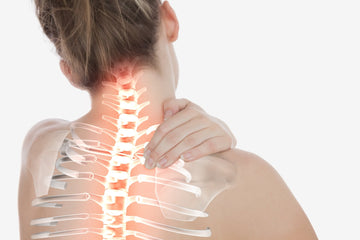Addiction Awareness: Understanding the Risks After Bariatric Surgery
by Anthony Benjamin on Oct 12, 2022

Addiction Awareness: Understanding the Risks After Bariatric Surgery
 After
bariatric surgery, you are likely to lose a significant amount of weight, which can cause
major adjustments to many aspects of your life. If you are like most, you will find some
changes to be positive (new routines, a new outlook on life), while you may find others
affect you negatively (stressed or lost relationships, unwanted attention). Some
post-bariatric patients turn to drugs, alcohol, or smoking to cope with the changes. Having
addiction awareness and understanding risks can help you during your postoperative weight
loss recovery.
After
bariatric surgery, you are likely to lose a significant amount of weight, which can cause
major adjustments to many aspects of your life. If you are like most, you will find some
changes to be positive (new routines, a new outlook on life), while you may find others
affect you negatively (stressed or lost relationships, unwanted attention). Some
post-bariatric patients turn to drugs, alcohol, or smoking to cope with the changes. Having
addiction awareness and understanding risks can help you during your postoperative weight
loss recovery.
“When such patients no longer can overeat to cope with their feelings, they may turn to “other external coping mechanisms like drugs or alcohol,” says Alexis Conason, PsyD, of the New York Obesity Research Center.
Taking Care of Your Mental Health
 With bariatric surgery, you will have to make several lifestyle
changes to achieve a successful outcome. These changes can include eating habits, activity
regimens, and specific behaviors.
With bariatric surgery, you will have to make several lifestyle
changes to achieve a successful outcome. These changes can include eating habits, activity
regimens, and specific behaviors.
Apart from the impact that surgery has on your physical body, these lifestyle changes can also affect your mental health, especially if you already have a mood disorder.
While everyone is different, some of the feelings you may experience after surgery are stress, anxiety, depression, and self-esteem issues.
According to the National Bureau of Economic Research, there is a “connection between mental [health] and the use of addictive substances.” Some people medicate their mental health symptoms by using alcohol, drugs, or smoking.
Unfortunately, these addictive substances do little to address depression, stress, anxiety, or any other symptoms you may feel. Instead, they create a new set of problems you will have to overcome.
To achieve the best long-term outcome, you have to take care of your mental health. Some key steps that you can take for improving emotional adjustment after weight loss surgery include:
- Follow your doctor’s orders from pre-surgery planning through post-surgery care.
- Be aware of the ups and downs you feel as well as your overall emotional state.
- Journal about what you are experiencing and track the food you eat.
- Set realistic goals and expectations and write them down.
- Remember why you decided to have weight loss surgery to stay motivated.
- Take pictures to document your weight loss as a reminder of your progress.
- Get plenty of rest because your body can cope better when fully rested.
If you are feeling overwhelmed and finding it hard to cope, you should reach out for help. Do not be afraid to seek support from family, friends, support groups, or professional counseling. Getting help when you need it will give you the tools to cope and help you feel less isolated and alone.
For more information, see Taking Care of Your Mental Health After Weight Loss Surgery.
Struggling with a New Lifestyle
 For many,
life after bariatric surgery will relieve anxiety, depression, and other issues you may have
been dealing with due to obesity. Others, however, will struggle with their new body, which
is why it is important to be aware of addictions.
For many,
life after bariatric surgery will relieve anxiety, depression, and other issues you may have
been dealing with due to obesity. Others, however, will struggle with their new body, which
is why it is important to be aware of addictions.
For some patients, food was probably a tool they used to help manage their emotions. Overeating may have helped to ease painful and uncomfortable feelings. After surgery, you can no longer cope with these emotions the same way. Some may even find their body unrecognizable when looking in the mirror.
Weight loss can also change how their friends and family interact with them, or find themselves receiving different kinds of attention, which can be a lot to handle. It can take time to adjust when everything has changed.
When you can no longer use food as a coping mechanism, or as a rewards system, your body will start looking for alternatives to replace it.
Transfer Addiction
Transfer addiction can occur after bariatric surgery. Overeating may have been an escape that you used as a comfort When you can no longer eat to cope with emotions or stress, you need to find a new outlet.
This change can result in the abuse of substances such as drugs, alcohol, or cigarettes. These substances can be dangerous to your health and cause severe complications after your surgery.
The first step to manage this type of addiction is to recognize and acknowledge that you have an addiction. Try talking to someone that you trust and get the help that you need to overcome the addiction.
At the end of the day, the worst thing you can do is stay silent and never talk to someone about how you are feeling.
Alcohol Addiction
It has been discovered that alcohol dependency can be linked to bariatric surgery. Specifically, the Roux-en-Y (RYGB) procedure can result in more patients developing an alcohol dependency.
It has yet to be discovered why this surgery has an increased number of patients who experience alcohol abuse over other types of bariatric procedures. One possible reason is the lack of an enzyme called alcohol dehydrogenase (ADH), which breaks down alcohol. ADH metabolizes alcohol in the stomach and the liver. Fasting and low-calorie diets that are common with weight loss surgery may lower the ability of ADH to breakdown alcoholic beverages, which leads to higher blood alcohol content and the potential for dependency.
In normal gut anatomy, ADH starts absorbing alcohol in the stomach. However, during the RYGB procedure, the surgeon creates a small pouch at the top of the stomach and reattaches the small intestine to the small pouch. As a result, the stomach lining is drastically reduced, and alcohol enters the blood stream quicker. Because of this, weight loss surgery patients can experience its effects quicker.
Additionally, as your body changes, your body will likely metabolize alcohol faster, which can be dangerous as you will no longer how much you can safely drink.
In a study conducted by Wendy C. King, associate professor epidemiology at the University of Pittsburgh Graduate School of Public Health in Pennsylvania, 20.8% of RYGB patients developed alcohol use disorder within five years of having the procedure.
Since post-bariatric patients are more susceptible to alcohol abuse, it is recommended that they abstain from alcohol entirely following surgery.
Substance Abuse
 Following
bariatric surgery, there are significant increases in the risk of substance abuse. The most
immediate risk is from painkillers. After surgery, you will take painkillers to manage the
pain. These painkillers can include acetaminophen and opioids such as Percocet, Vicodin,
Tylenol #3, or Tramadol.
Following
bariatric surgery, there are significant increases in the risk of substance abuse. The most
immediate risk is from painkillers. After surgery, you will take painkillers to manage the
pain. These painkillers can include acetaminophen and opioids such as Percocet, Vicodin,
Tylenol #3, or Tramadol.
The problem with pain management drugs is they are habit-forming drugs. The stomach is also smaller following surgery, which means it absorbs medications differently.
Still, it is important to be cautious with these drugs and be alert to any signs that you developed an addiction. Some of these signs include:
- You may begin taking medication in a way that is not prescribed by a physician, such as for a longer period or in a higher dosage.
- You could find yourself craving the substance.
- You can experience withdrawal symptoms when you stop taking the drug. Withdrawal symptoms will be like a cold or flu, like a runny nose, cough, nausea, vomiting, fever, headache, and general soreness.
- You could find that everything revolves around you getting more drugs. You may even start going to doctors and give some excellent excuses for acquiring several prescriptions or even altering prescriptions to increase the number of pills so that you can get the drugs.
- You may find it harder to get through the day without drugs, and your responsibilities in life will likely suffer as a result. Personal hygiene may also become something you neglect.
- You also could have developed a drug tolerance, meaning it takes more of the drug to create the same effects.
- You may find yourself spending most of your money on drugs, possibly all your money.
- Problems with friends or family may come up because of overusing drugs.
When to Seek Help
Transfer addiction can occur after bariatric surgery. Overeating may have been an escape that you used as a comfort When you can no longer eat to cope with emotions or stress, you need to find a new outlet.
This change can result in the abuse of substances such as drugs, alcohol, or cigarettes. These substances can be dangerous to your health and cause severe complications after your surgery.
The first step to manage this type of addiction is to recognize and acknowledge that you have an addiction. Try talking to someone that you trust and get the help that you need to overcome the addiction.
At the end of the day, the worst thing you can do is stay silent and never talk to someone about how you are feeling.
When to Seek Help
 When it comes to
addictions, you may find it difficult to admit you have a problem. If your addiction is
causing a negative effect in your life, it is time to take a closer look and come to terms
with the fact that you may have a problem.
When it comes to
addictions, you may find it difficult to admit you have a problem. If your addiction is
causing a negative effect in your life, it is time to take a closer look and come to terms
with the fact that you may have a problem.
Many people do not seek help because they do not think their problem is bad enough. If you are questioning whether you may need help, you most likely do. Addiction is a chronic disease, much like high blood pressure, diabetes, cancer, and others.
Reach out to your bariatric healthcare team or to a trained professional for help and advice. It is never too late to get the help you need.
ProCare is Here to Help You on Your Weight Loss Journey
At ProCare Health, your wellbeing is our number one priority. We are committed to providing you with the best quality multivitamin supplements and other products that deliver the essential nutrients you need on your journey to a healthier life. Please contact us today with questions, to get a free sample, or to place an order.
Please note: the information contained within this article is in no way to be considered medical advice nor is it meant to replace your medical team’s recommendations. This article’s purpose is to educate and allow the reader to make informed decisions with the help of his or her medical team.










